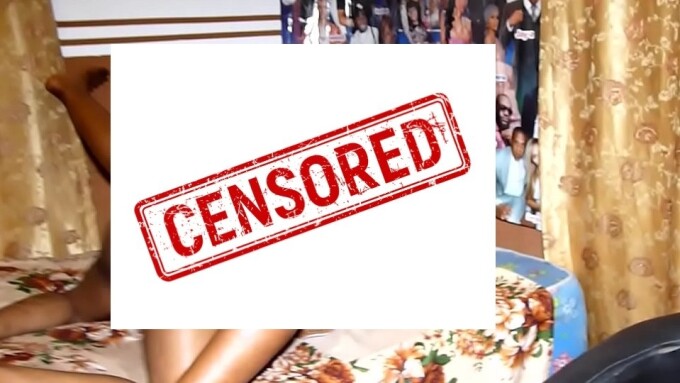LAGOS — The federal government of Nigeria, the largest economy in Africa, has ordered all open-access online platforms to “remove, disable or block access" to all "pornographic" content.
Although the introduction to the order, which was issued last week, specifically targets "any non-consensual content, which displays partial or full nudity, sexual acts, deep fake or revenge porn," a less-prominent section expands the ban to "all illegal material" and orders platforms to "inform users through the terms of service not to create, publish, promote, modify, transmit, store or share any content or information" that is "defamatory, libelous, pornographic, revenge porn, bullying, harassing, obscene, encouraging money laundering, exploiting a child, fraud, violence or inconsistent with Nigeria's laws and public order."
Gay content is already illegal in Nigeria, as is any form of private gay sexuality. According to reports, the country ranks second worldwide on searches for "gay porn."
The order was made public last Tuesday, with all platforms available in the nation of 216 million given only 24 hours to comply.
It is unclear what the reach and success of the measure has been in practice, especially considering the easy availability of VPN programs to change an individual IP address location.
The order was included in the new Code of Practice for Interactive Computer Service Platforms/Internet Intermediaries (Online Platforms), issued last week according to local sources.
The Code of Practice was developed by the National Information Technology Development Agency together with the Nigerian Communications Commission and the National Broadcasting Commission. Those organizations claim to have requested input from top platforms such as Twitter, Facebook, WhatsApp, Instagram, Google and TikTok.
The Code of Practice urges online platforms to “act expeditiously to remove, disable or block access to non-consensual content that exposes a person’s private areas, full or partial nudity, sexual act or revenge porn, where such content is targeted to harass, disrepute, or intimidate an individual.”
“A Platform must acknowledge the receipt of the complaint and take down the content within 24 hours,” the order concluded.
Moreover, the order mandated, any alleged “unlawful content” should immediately be deleted “upon receiving a notice from a user, or an authorized government agency.”
In an attempt to pressure international companies, the Code of Practice also requires each online platform to designate a representative to interface with the Nigerian authorities. Any platform with more than 100,000 Nigerian users is also ordered to establish an office in Nigeria; such offices are required to provide information about any Nigerian users to the government upon demand.
According to a recent report by the Council on Foreign Relations, Nigerian President Muhammadu Buhari has “reverted to his authoritarian style of the 1980s, growing intolerant of the press and civil society organizations that challenge his administration. Buhari’s government accuses its critics of crimes including treason and terrorism, and has undercut the judiciary. This recent authoritarian turn threatens progress made in Africa’s most populous country since the military left power in 1999.”
Buhari is a retired Nigerian Army major general who served as the country's military head of state from 1983 until 1985, after taking power in a military coup. He was elected as constitutional president in 2015 and has been in power for seven years.







